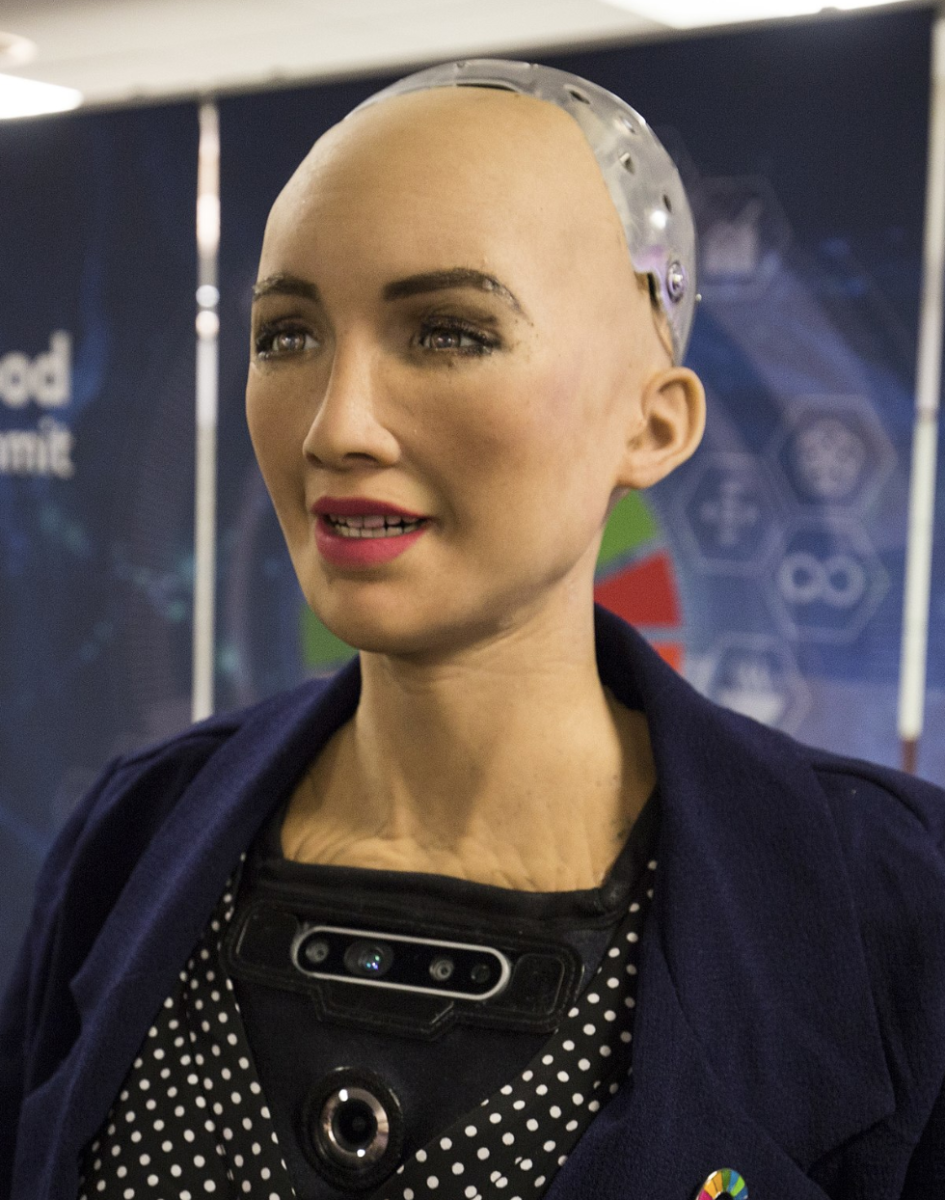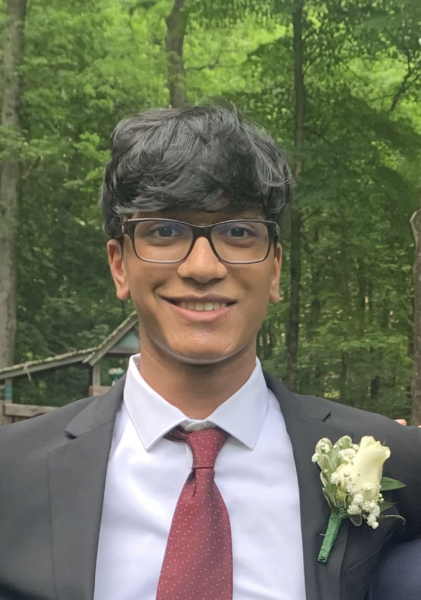On Valentine’s Day of 2016, inventor and visionary David Hanson activated his robot “Sophia,” the most advanced humanoid robot the world had ever seen. Assembled in Hanson’s Hong Kong laboratory, this tin can of genius teeters on the brink between human and machine. Sophia’s body, standing at 5’5’’, consists of mechanized motors and a maze of wires. Its eyes, powered by computer vision algorithms, can recognize individuals and its surrounding environment. Sophia acts like a human and imitates human thinking thanks to Artificial Intelligence. Its knowledge, from an uploaded database of information, allows it to engage in basic conversation.
Sophia and robots like it blur the line between the human and non-human. Their recent science-fiction-like development begs a twist on humanity’s defining question: what does it mean to be human in the twenty-first century? Ironically, answering this modern question necessitates a retrospective look to the fourteenth century.
In the year 1345, Francesco Petrarch, a young Italian ambassador, discovered an ancient collection of letters from the Roman statesman Cicero, ushering in the age of Renaissance humanism. This worldview revolves around the human experience, with its proposed curriculum of study, the liberal arts, emphasizing human accomplishments while cultivating an appreciation for the self. Humanist thinking highlights an individual’s identity and contributions to society.
In his “Essay Concerning Human Understanding,” John Locke describes the human mind at birth as a tabula rasa, or blank slate, void of any impressions of thought or experience. Locke argues sensory and emotional experiences imprint on this blank state, contributing to one’s identity. This notion of the mind shaped by unique experiences distinguishes humans from mechanized flesh. Experiences cannot be uploaded into a robot; they can only be collected throughout life. Each human being is the result of their experiences, which is the basis for their unique identity.
A unique being makes unique contributions. The ability to innovate is one of the defining characteristics of the human race. Humans are creative and inventive; they take their existing knowledge, everything collected on Locke’s tabula rasa, and develop novel ideas. From the control of fire to the creation of modern electricity, humans have revolutionized their landscape, unlike any other life form on Earth, propelling themselves towards better tomorrows and new heights. However, humanity’s innovative dreams cannot be realized without collaboration. In the early days of civilization, individuals formed a collective to protect them from nature, increasing their chances for survival. This system required each member of the community to take on specific roles with a shared responsibility to the collective. Humans combine physical and intellectual forces to improve their lives and seek a brighter future.
Individuals can act however they see fit for their own good or for the good of others; this is agency. They can exercise their free will to influence the world around them, shaping their destinies. This in itself is not unique. A bird can decide to fly from one tree to another, and a frog can decide when to eat dinner. Jean-Jacques Rousseau’s “Social Contract,” however, extrapolates this concept of agency to a larger group. He states that societies agree on some set of rules, or guiding principles, to shape individuals’ actions so that they are not damaging to the collective. These rules serve to differentiate right from wrong. The navigation through this moral framework defines human actions. Individuals act freely for anything they wish or desire but can expect to be held accountable for their choices and judged by the agreed-upon notions of right and wrong. Although some other species have rudiments of morality and compassion, this is mainly unique to human society.
Sophia fails the test in the ways this essay has defined humans—beings whose identity and contributions are rooted in unique life experiences, and actors with agency as part of a larger collaborative and ethical society.
Unlike humans, AI systems lack agency. Confined by their training data, they simply reproduce already existing information and patterns instead of creating anything truly new. Moreover, they cannot differentiate between right and wrong, as seen in instances when chatbots produce racial slurs or write dangerous malware. Lastly, AI operates independently, devoid of collaboration or participation either as part of a society or in the pursuit of progress.
The title of human has special meaning and importance, characterized by the exceptional ability to think collectively and individually within society to change the world and forge a better future. As new technologies emerge and the line between human and machine blurs, a clear distinction must be made between the two; value resides in authenticity that can never be usurped by the artificial.


